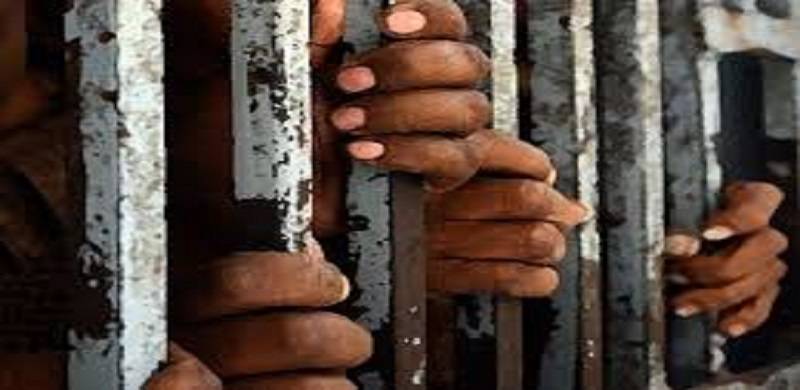
Pakistan marked 'Youm-e-Istehsal' (Day of Exploitation) in solidarity with Kashmiri people living under Indian occupation and condemned the Indian government for its violations of human rights in the occupied valley on the anniversary of Kashmir annexation today. However, it is worth taking out a moment to reflect if the situation in Pakistan is any different.
August 5 is also the anniversary of the promulgation of a draconian ordinance in the Khyber Pakhtunkhwa (KP) province of Pakistan. The KP Actions (in aid of civil power) Ordinance gave sweeping powers to the military to hold suspects in interment centres even bypassing the government as and when it deems fit. It allows wide-ranging powers to the authorised officers and armed forces besides giving an interning authority to detain a suspect in interment centres until the continuation of action in aid of civil power by the armed forces.
The ordinance was previously enforced in former FATA during the military operations to bring the action against terrorists into the legal framework. However, its extension to the entire province by the KP government at a time when the terrorism, in the state's own words, has been 'eradicated'; points towards the shrinking space for civil rights in Pakistan. International Commission of Jurists had stated that the law would lead to 'serious human rights violations and miscarriages of justice, contrary to the purported aims of the measures'.
India has a similar law in Kashmir, knows as the Public Safety Act, which allows the state to detain citizens on the pretext of public safety.
Subsequently, the KP Actions Ordinance was challenged in the Peshawar High Court, which termed the ordinance unconstitutional and scrapped it on Oct 18, 2019. The PHC verdict was later challenged in the Supreme Court. On Oct 25, the SC overruled the high court verdict and ordered the formation of a larger bench to review the case. However, there has been no decision on the case by the apex court so far. The court had said that it would not let anyone infringe fundamental rights.
Over the past few years, the space for dissent is increasingly shrinking in Pakistan, with government enacting laws [some seem to be in the pipeline] to curb free speech.
Ironically, the government of Pakistan is adopting the same practices that India has adopted in Kashmir to quell the separatist movement. If Pakistan wants to stand in solidarity with Kashmiris and make a stronger case, it must grant citizens their constitutional liberties instead of detaining them in internment centres under draconian laws.
August 5 is also the anniversary of the promulgation of a draconian ordinance in the Khyber Pakhtunkhwa (KP) province of Pakistan. The KP Actions (in aid of civil power) Ordinance gave sweeping powers to the military to hold suspects in interment centres even bypassing the government as and when it deems fit. It allows wide-ranging powers to the authorised officers and armed forces besides giving an interning authority to detain a suspect in interment centres until the continuation of action in aid of civil power by the armed forces.
The ordinance was previously enforced in former FATA during the military operations to bring the action against terrorists into the legal framework. However, its extension to the entire province by the KP government at a time when the terrorism, in the state's own words, has been 'eradicated'; points towards the shrinking space for civil rights in Pakistan. International Commission of Jurists had stated that the law would lead to 'serious human rights violations and miscarriages of justice, contrary to the purported aims of the measures'.
India has a similar law in Kashmir, knows as the Public Safety Act, which allows the state to detain citizens on the pretext of public safety.
Subsequently, the KP Actions Ordinance was challenged in the Peshawar High Court, which termed the ordinance unconstitutional and scrapped it on Oct 18, 2019. The PHC verdict was later challenged in the Supreme Court. On Oct 25, the SC overruled the high court verdict and ordered the formation of a larger bench to review the case. However, there has been no decision on the case by the apex court so far. The court had said that it would not let anyone infringe fundamental rights.
Over the past few years, the space for dissent is increasingly shrinking in Pakistan, with government enacting laws [some seem to be in the pipeline] to curb free speech.
Ironically, the government of Pakistan is adopting the same practices that India has adopted in Kashmir to quell the separatist movement. If Pakistan wants to stand in solidarity with Kashmiris and make a stronger case, it must grant citizens their constitutional liberties instead of detaining them in internment centres under draconian laws.
